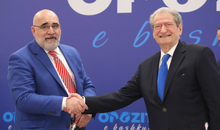
 Flash News
Flash News
Wanted in Albania for murder, Ardian Ahmetaj, friend of Laert Haxhiu, arrested in Greece
The second day of the "Giro d'Italia 2025", the roads that will be blocked in Tirana
Three police officers in Tirana under investigation for arbitrary actions against a minor
DW: Parliamentary elections a decisive test for the EU
Gazment Bardhi with strong accusations: Electoral terrorists of Balluk are buying votes in Fier
Parliamentary elections, DW analysis: How much weight does the vote of the gray electorate have in Albania?

3.7 million citizens, including the diaspora for the first time, are called to vote for the new parliament on May 11 in Albania.
How does the so-called "gray" electorate behave and how much weight does this group's vote have in elections?
Klodeta I., an engineer by profession, has already decided who she will vote for.
Since reaching adulthood, she has exercised her right to vote, although on many occasions she has been hesitant to decide which candidate or political entity she would add a vote to in the count.
She considers herself a gray electorate, like most of her friends. "I think the gray electorate is the electorate with the most common sense in a society like Albania.
I can define it as the most inherent oppositional thought in our country.
"But, unfortunately, this electorate is increasingly decreasing in numbers, because in my opinion, it is the electorate that is abandoning the country," she tells DW.
For about 5 years, Klodeta has been living away from Albania and working in a European Union country, and this year she is sending her vote by mail, as the diaspora is allowed to vote for the first time.
Typology of the gray electorate in Albania
In theory, political science defines the gray electorate as that part of the electorate that cannot choose between the options offered to it, or that is indifferent.
What is the typology of the grey electorate in Albania? Political scientist Ermal Hasimja tells DW that Albania does not have precise studies about this typology, "but it can be assumed with some certainty that the grey electorate is mainly urban and has a better than average level of education and economic status."
"The economic independence of this electorate makes it less dependent on politics," says Hasimja.
For Afrim Krasniqi, director of the Institute for Political Studies, "the gray electorate, according to studies, consists of 15-23% and has actively participated in elections only when there have been political rotations."
According to him, this electorate consists of people who are informed and aware of politics, therefore in many cases this electorate is rejecting.
"I think that part of this electorate in these elections will be pushed towards new parties. But the current campaign is somewhat negativistic.
It does not create a climate that inspires confidence in the electoral process and encourages people to participate in the electoral process.
"So, part of the gray electorate will boycott, while the rest, if they participate in the vote, will vote for the new political parties," Krasniqi analyzes for DW.
For Klodeta, this category in Albania has grown progressively. The reasons, according to her, are the same as those for which young people are leaving the country.
"The programs of political parties that have the potential to enter parliament are not at all convincing.
"There is a lack of long-term perspective for the country. Also, the vote has lost its importance, as long as it is freely bought on the market," she says.
While Krasniqi thinks that the gray electorate is penalized by the completely opposite category from him.
"The more militants we have, as we currently do, the political leaders are forced to feed the militant crowds and provide what the militants want.
They do not offer a strategy to educate militants, and as long as they use such discourse, the gray electorate feels penalized."
The (Un)Power of the (un)decided
In transitional Albania, politics has had the same political actors, almost without new figures or diverse options for choice.
In these parliamentary elections, after 35 years, in addition to traditional parties, Albanians also have the opportunity to vote for new parties that have entered the scene.
"If we analyze the curve that this electorate has known over the years - excluding periods when there were massive votes like in '91, '92, '97, which were massive votes for or against - in other periods the gray electorate has been traditionalist or rejector, or voters of somewhat moderate candidates," says Krasniqi.
According to him, the gray electorate in Albania does not constitute a political decision-making power, is not very active and has been deprived during most electoral processes of influencing policymaking.
"A gray electorate has value when the political spectrum is open, when there are new trends and when there is more pluralism and more choices, which we have not had until now.
In these elections, new parties are struggling to secure a minimum possible seat in parliament, which means not being third-party political decision-making actors.
For Klodeta, the questions about voting in these elections ended the moment she sealed the "diaspora envelope" and sent it to Albania. "The vote is my voice and at the same time the hope that one day someone will have ears to hear it," concludes Klodeta.
"The more the gray electorate in Albania is reduced to zero, the more the dominance of political party militants will decrease and the more space we will have for functional democracy, for political debate, for alternatives, for dialogue, for competition, for meritocracy, for transparency and accountability," says Krasniqi./DW
Latest news


Berisha thanks supporters: Today we are more united than ever
2025-05-10 15:55:59
Fourth term: A luxury Albania cannot afford
2025-05-10 15:36:30
How to vote in tomorrow's parliamentary elections?
2025-05-10 15:24:12

Rama or Berisha, who won the audience battle on the two big screens?
2025-05-10 14:51:46
Tragedy in Gramsh/ Landslide crushes two workers, one of them dies
2025-05-10 14:28:15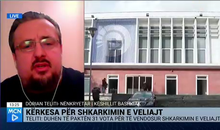
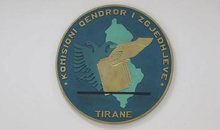

BIRN: Facebook profiles from Vietnam flooded Rama's interview on the show
2025-05-10 13:30:17





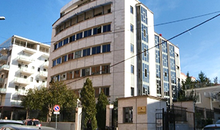
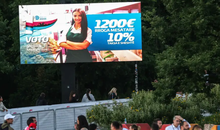

Foreign exchange, May 10, 2025
2025-05-10 10:16:12
How much does hourly parking cost in the capital?
2025-05-10 09:59:58

The US can no longer ignore Albania
2025-05-10 09:17:50




What do the stars predict for you today?
2025-05-10 08:18:36
Morning Post/ In 2 lines: What mattered yesterday in Albania
2025-05-10 07:59:03

Closing of the rallies/ Who got more clicks, Rama or Berisha?
2025-05-09 22:44:02



Rama opens up about LaCivita: It's the only 'same wheel' in that pile of waste
2025-05-09 21:40:54




Berisha thanks LaCivita: You insulted Rama by hitting the table with your fists
2025-05-09 20:51:13



PS ends campaign, Iris Luarasi: Small parties are like men who rape women
2025-05-09 20:12:35
Accident in Pogradec, a 73-year-old woman is injured
2025-05-09 20:05:29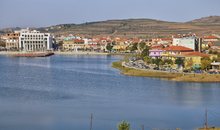

May 11 elections/ ID card distribution offices will remain open on Saturday
2025-05-09 19:30:22

DW: Parliamentary elections a decisive test for the EU
2025-05-09 18:53:03



Euro deposits fell by 0.4% during the first quarter of the year
2025-05-09 18:17:43

Eurovision 2025: The way qualifying countries are announced changes
2025-05-09 17:54:53
Kosovo/ Famous stylist stabs girlfriend in Pristina, then kills himself
2025-05-09 17:43:40

Prokuroria kërkon tre burgime të përjetshëm për Dan Hutrën
2025-05-09 17:23:51
Election materials arrive in Durrës under strict security measures
2025-05-09 17:11:46

Who will I vote for?
2025-05-09 16:48:25
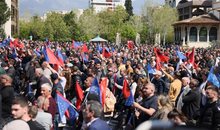

DP: Wanted persons are looking to collect votes for the Socialist Party
2025-05-09 16:02:06

Artan Hoxha: One person was taken hostage for political conflict! SPAK failed
2025-05-09 15:30:17

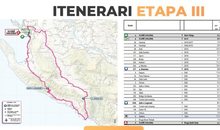


Is Rama ready to become the next Hoxha?
2025-05-09 13:50:12
Election materials arrive in Kukës, Has and Tropoja
2025-05-09 13:30:20
Electoral flight to Vlora
2025-05-09 13:18:04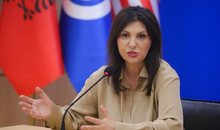

IdentiTek offices open on Saturdays
2025-05-09 13:03:13
Will artificial intelligence help us talk to animals?
2025-05-09 12:55:58



Rama's fourth act: between Brussels and the Mafia
2025-05-09 12:12:47
The body of a 29-year-old man in Klos is found after 6 days
2025-05-09 12:01:27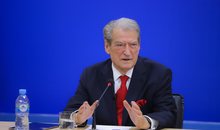
Berisha: After May 12, this opposition will become the majority in Albania
2025-05-09 11:52:37
Leo XIV celebrates his first Mass as Pope
2025-05-09 11:42:34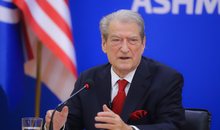

Spaho denounces: SP candidate in Pogradec gives 100 thousand lek for the vote
2025-05-09 11:27:26
Mustafaj: Proud of the worthy campaign of the DP
2025-05-09 11:22:20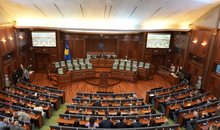
Constitution fails again, Kosovo still without a new Assembly
2025-05-09 11:06:55





"Votes have no price", the US embassy in Tirana 'slaps' Rama
2025-05-09 10:06:49

Two young men arrested for supplying criminal groups with firearms
2025-05-09 09:45:19
